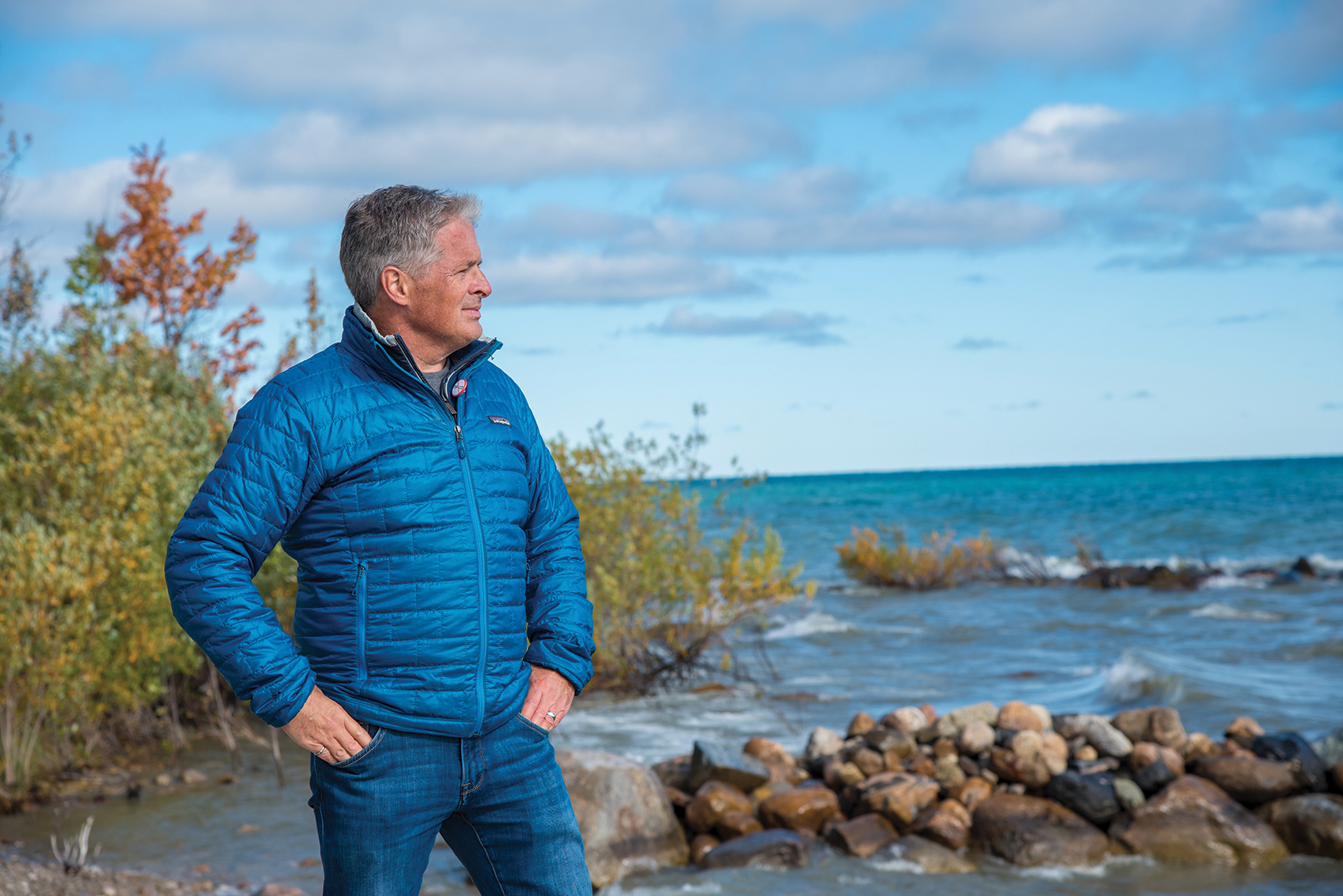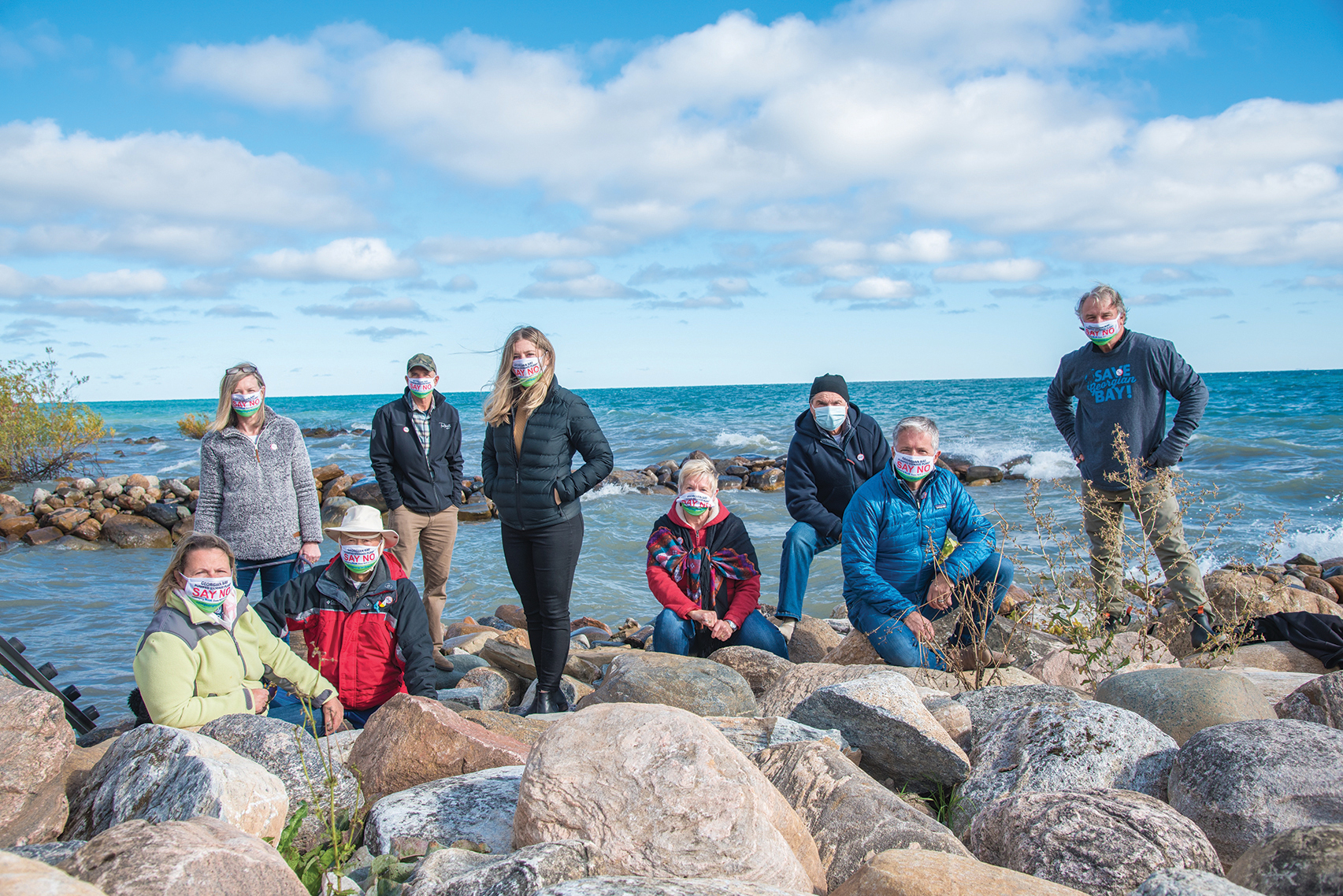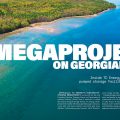Corporate greenwashing and the Georgian Bay pumped storage plant
by Bruce Rodgers, MSc, PEng ❧ photography by Doug Burlock
There is currently a plan to build a pumped storage plant (PSP) on the shore of Georgian Bay on Department of National Defence (DND) land in Meaford. The proponent, TC Energy, proposes an open-loop PSP, marketing it as a “green” project and one of the largest climate change initiatives in Canada. However, the plant will consume more electricity than it generates, increase carbon dioxide (CO2) emissions, potentially harm the environment, and pose a risk to those living in the impact zone.
What does this project entail, what are the dangers involved, and by what criteria is it labelled a “green” initiative? There are a variety of factors to consider when examining this proposal.
Open vs. Closed-loop PSPs
The proposed open-loop PSP will pump water from the bay at night to a 375-acre man-made reservoir on top of the Niagara Escarpment, and release it during the day to generate electricity. An alternative to this proposal would be to build a closed-loop PSP, whereby a man-made lower reservoir would be used instead of Georgian Bay.
Every time the reservoir is filled, it will draw water from the Bay plus everything living in that water. A similar open-loop PSP, located on the shores of Lake Michigan near Ludington, Michigan, reportedly killed 150 million fish per year. TC Energy has reacted to these concerns by relocating the intake structure into deep water, which is the habitat for Cisco, an endangered species of fish.
Recently, TC Energy announced a closed-loop PSP in Alberta, citing that the closed-loop system “will significantly reduce any potential adverse environmental impacts.” When asked about the Georgian Bay PSP, TC Energy stated a closed-loop system was not considered because of the “significant increase in cost.”
Inefficiency
According to TC Energy, the plant will consume 2,044 gigawatt hours (GWh) of electricity per year to produce 1,474 GWh. This 30 per cent loss may not sound like much, but it is a huge waste of energy, which could otherwise serve a city the size of Barrie, or 16 Meafords.
The Georgian Bay PSP will be a net consumer of energy, meaning it will use more energy than it produces. The plant will rely on energy generated by nuclear plants to pump water to the upper reservoir, and because of this, it will not mitigate the loss of power from the closure of the Pickering nuclear plant.
Fictitious CO2 Credits
TC Energy claims the project will reduce CO2 emissions by 490,000 tonnes per year. This claim is misleading.
The PSP will not actually reduce CO2 emissions. The claim is based on the logic that if TC Energy chose to build a natural gas plant, it would emit 500,000 tonnes of CO2. But if they build a PSP instead, it won’t emit as much CO2. Therefore, by building a PSP, TC Energy claims credit for a reduction in CO2 emissions simply because they decided not to build a natural gas plant. The electricity that the PSP consumes to fill the reservoir would otherwise be sold to the United States. If no longer available, natural gas plants would make up the difference, increasing CO2 emissions by 500,000 tonnes per year.
Alternatives
The Clean Air Alliance states that Hydro Quebec’s reservoirs are the best load balancing option for Ontario. By investing $80 million to build a 20-kilometre transmission line, Ontario could increase its electricity exchange capability by 2,000 megawatts (MW). In contrast, TC Energy proposes a $4.3 billion PSP and 80 km transmission line, which will increase Ontario’s peak capacity by only 1,000 MW.
The Ontario Society of Engineers recommends reform of electricity prices to incentivize consumers to use surplus electricity instead of burning fossil fuels. This reform will reduce energy costs and reduce CO2 emissions by 2,100,000 tonnes per year. These alternatives benefit Ontario without imposing additional costs or harming the environment. But these alternatives do not benefit TC Energy.
The Real Reason Behind the Proposed Georgian Bay PSP
The real benefit of this project is to TC Energy, which own 48.4 per cent of Bruce Power. As a nuclear power plant, Bruce Power has a constant output of energy, day and night. They make money during the day and less money at night, because they can’t stop production. TC Energy wants to store the energy produced during the night so that they can sell it during the day at a higher price. This has nothing to do with the Pickering Nuclear Generating Station closing, a reduction in carbon emissions, or creating a “green” project as a climate change initiative. This is about profit for TC Energy. ❧
Bruce Rodgers is an environmental impact specialist with more than 30 years’ experience conducting environmental assessments for large capital projects. He is a local property owner and a member of the Save Georgian Bay group, which is opposed to the TC Energy proposal for a pumped storage facility on DND land in Meaford.

















